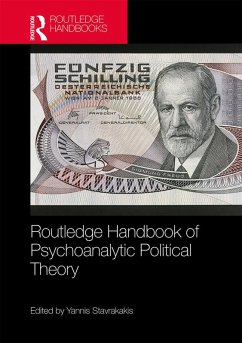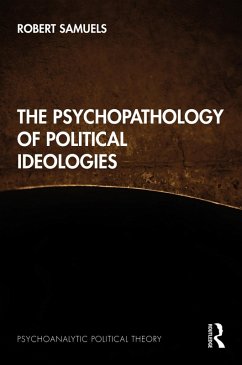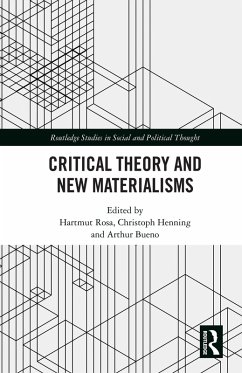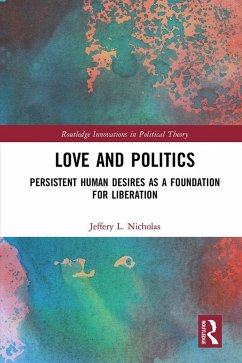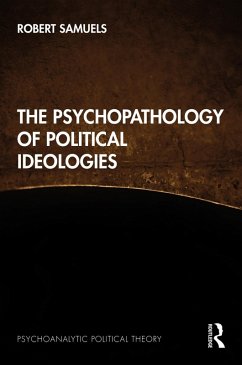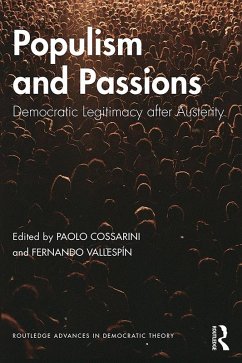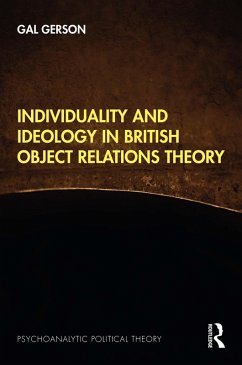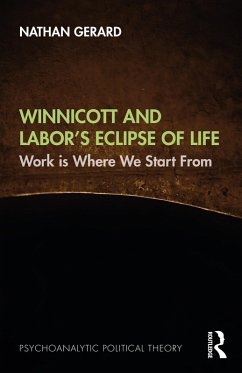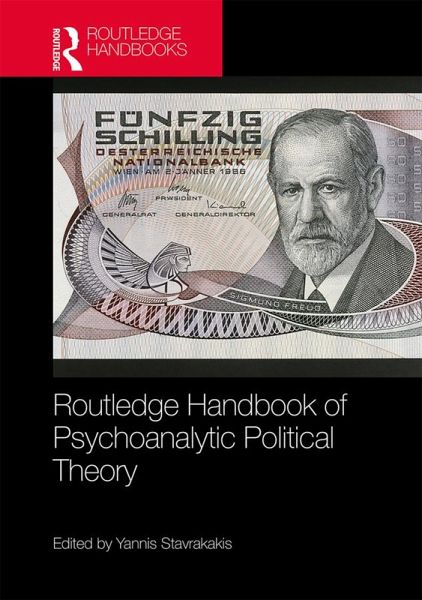
Routledge Handbook of Psychoanalytic Political Theory (eBook, PDF)

PAYBACK Punkte
23 °P sammeln!
The emerging field of 'psychoanalytic political theory' has now reached a stage in its development and rapid evolution that deserves to be registered, systematically defined and critically evaluated. This Handbook provides the first reference volume which showcases the current state of psychoanalytic political theory, maps the genealogy of its development, identifies its conceptual and methodological resources and highlights its analytical innovations as well as its critical promise. The Handbook consists of 35 chapters offering original, comprehensive and critical reviews of this field of stu...
The emerging field of 'psychoanalytic political theory' has now reached a stage in its development and rapid evolution that deserves to be registered, systematically defined and critically evaluated. This Handbook provides the first reference volume which showcases the current state of psychoanalytic political theory, maps the genealogy of its development, identifies its conceptual and methodological resources and highlights its analytical innovations as well as its critical promise. The Handbook consists of 35 chapters offering original, comprehensive and critical reviews of this field of study. The chapters are divided into five thematic sections:
The Routledge Handbook of Psychoanalytic Political Theory will serve as scholarly reference volume for all students and researchers studying political theory, psychoanalysis, and the history of ideas.
- Figures discusses the work of major psychoanalytic theorists who have influenced considerably the development of psychoanalytic political theory.
- Traditions genealogically recounts and critically reassesses the many attempts throughout the 20th century of experimenting with the articulation between psychoanalysis and political theory in a consistent way.
- Concepts asks what are the concepts that psychoanalysis offers for appropriation by political theory.
- Themes presents concrete examples of the ways in which psychoanalytic political theory can be productively applied in the analysis of racism, gender, nationalism, consumerism, etc.
- Challenges/Controversies captures the ways in which psychoanalytic political theory can lead the way towards theoretical and analytical innovation in many disciplinary fields dealing with cutting-edge issues.
The Routledge Handbook of Psychoanalytic Political Theory will serve as scholarly reference volume for all students and researchers studying political theory, psychoanalysis, and the history of ideas.
Dieser Download kann aus rechtlichen Gründen nur mit Rechnungsadresse in A, B, BG, CY, CZ, D, DK, EW, E, FIN, F, GR, HR, H, IRL, I, LT, L, LR, M, NL, PL, P, R, S, SLO, SK ausgeliefert werden.




